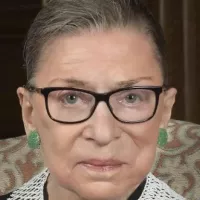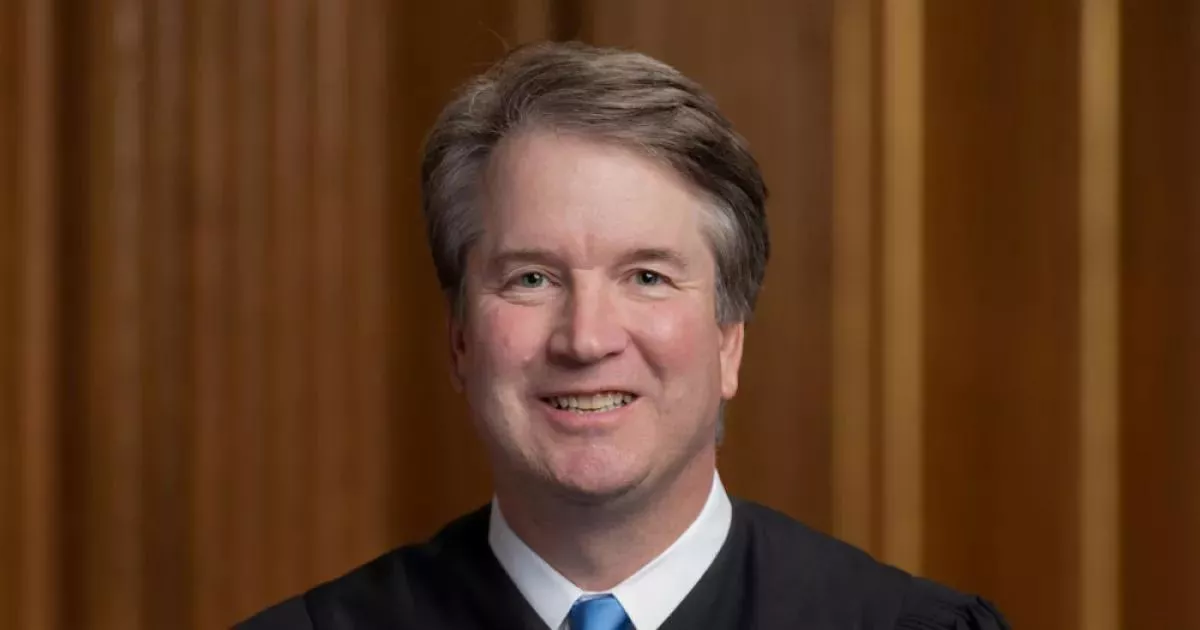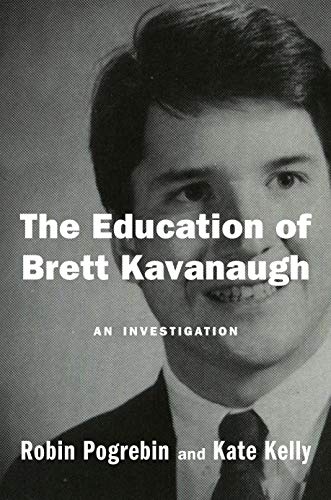Public opinion and media debates around Brett Kavanaugh—discover key moments of controversy.
Brett Kavanaugh is an American lawyer and jurist who currently serves as an Associate Justice of the Supreme Court of the United States. Nominated by President Donald Trump, he assumed the role on October 6, 2018. Prior to his Supreme Court appointment, Kavanaugh served as a U.S. circuit judge on the U.S. Court of Appeals for the District of Columbia Circuit from 2006 to 2018.
1981: Swetnick attended parties
Julie Swetnick described attending "well over ten house parties in the Washington, D.C. area during the years 1981–1983 where Mark Judge and Brett Kavanaugh were present".
1983: Ramirez Allegation
During the 1983-84 academic year, Deborah Ramirez alleged that Brett Kavanaugh exposed himself and thrust his penis against her face during a college party. Kavanaugh denied this event ever happened.
1983: Swetnick attended parties
Julie Swetnick described attending "well over ten house parties in the Washington, D.C. area during the years 1981–1983 where Mark Judge and Brett Kavanaugh were present".
1992: Planned Parenthood v. Casey
In 1992, the Supreme Court case Planned Parenthood v. Casey reaffirmed Roe v. Wade, Kavanaugh noted Casey is a key decision about when the Court's precedent may be overturned.
September 1998: Release of Starr Report
In September 1998, Brett Kavanaugh was a principal author of the Starr Report, which argued for Bill Clinton's impeachment in the Bill Clinton–Monica Lewinsky sex scandal.
2000: Pro Bono Counsel for Elián González Relatives
In 2000, Brett Kavanaugh was pro bono counsel for relatives of Elián González, a six-year-old rescued Cuban boy, in their efforts to keep him from returning to his father in Cuba.
2003: Kavanaugh comments on Roe v. Wade
In 2003, Kavanaugh stated in an email that he was unsure if all legal scholars considered Roe v. Wade as settled law at the Supreme Court level, given the Court's ability to overrule precedent and the views of three current justices. He clarified that his statement reflected legal scholars' views at the time, not his own.
2003: Analysis of Kavanaugh's Voting Record
In 2018, two law professors evaluated Kavanaugh's appellate court decisions for the Washington Post, rating his decisions in four areas and found he had the most conservative voting record on the D.C. Circuit in three of those policy areas, and the second-most in the fourth, between 2003 and 2018.
July 2007: Accusations of Lying to Judiciary Committee
In July 2007, senators Patrick Leahy and Dick Durbin accused Brett Kavanaugh of lying to the Judiciary Committee about his involvement in formulating the Bush administration's detention and interrogation policies.
2007: Kavanaugh Dissent on ExxonMobil Human Rights Case
In 2007, in Doe v. Exxon Mobil Corp., Kavanaugh dissented when the circuit court allowed a lawsuit making accusations of ExxonMobil human rights violations in Indonesia to proceed, arguing that the claims were not justiciable. He dissented again when the circuit court later found that the corporation could be sued under the Alien Tort Statute of 1789.
August 2008: Dissent on Sarbanes-Oxley Act
In August 2008, Brett Kavanaugh dissented when the D.C. Circuit found that the Constitution's Appointments Clause did not prevent the Sarbanes–Oxley Act from creating a board whose members were not directly removable by the president.
April 2009: Kavanaugh on Detainee Transfer Notices
In April 2009, Kavanaugh wrote a long concurrence when the court found that detainees at the Guantanamo Bay detention camp had no right to advance notice before being transferred to another country.
2009: Kavanaugh Defends Presidential Immunity
In 2009, Kavanaugh's Minnesota Law Review article defended the president's immunity from prosecution while in office, according to Brian Bennett, writing for Time magazine.
June 2010: Kavanaugh on Al-Shifa Defamation Suit
In June 2010, Kavanaugh wrote a concurrence in judgment when the en banc D.C. Circuit found that the Al-Shifa pharmaceutical factory owners could not bring a defamation suit regarding the government's allegations that they were terrorists.
August 2010: Kavanaugh on Authorization for Use of Military Force Against Terrorists
In August 2010, Kavanaugh wrote a lengthy concurrence when the en banc circuit refused to rehear Ghaleb Nassar Al Bihani's rejected claims that the international law of war limits the Authorization for Use of Military Force Against Terrorists.
November 2010: Kavanaugh Dissent on GPS Tracking
In November 2010, Kavanaugh dissented from the denial of rehearing en banc after the circuit found that attaching a Global Positioning System tracking device to a vehicle violated the Fourth Amendment to the United States Constitution.
October 2011: Kavanaugh Dissent on Semi-Automatic Rifle Ban
In October 2011, Kavanaugh dissented when the circuit court found that a ban on the sale of semi-automatic rifles was permissible under the Second Amendment.
November 2011: Dissent on Affordable Care Act
In November 2011, Brett Kavanaugh dissented when the D.C. Circuit upheld the Patient Protection and Affordable Care Act (ACA), arguing that the court lacked jurisdiction in the case.
2012: Supreme Court Affirms Circuit's Judgment in United States v. Jones
In 2012, the Supreme Court affirmed the circuit's judgment in United States v. Jones, a case where Kavanaugh had previously dissented from the denial of rehearing en banc regarding GPS tracking.
April 2014: Kavanaugh Dissent in SeaWorld Case
In April 2014, Kavanaugh dissented when the court found that Labor Secretary Tom Perez could issue workplace safety citations against SeaWorld regarding the multiple killings of its workers by Tilikum, an orca.
2014: Kavanaugh Concurs on Retroactive Conviction of War Crimes
In 2014, Kavanaugh concurred in the judgment when the en banc circuit found that Ali al-Bahlul could be retroactively convicted of war crimes, provided the existing statute already made it a crime "because it does not alter the definition of the crime, the defenses or the punishment".
2014: Dissent from Denial of Rehearing En Banc
In 2014, after a unanimous panel found that the ACA did not violate the Constitution's Origination Clause in Sissel v. United States Department of Health & Human Services, Brett Kavanaugh wrote a long dissent from the denial of rehearing en banc.
2014: Supreme Court Reverses Kavanaugh on Clean Air Act Regulation and Greenhouse Gas Emissions
In 2014, the Supreme Court reversed Kavanaugh by a vote of 6–2 in EPA v. EME Homer City Generation, L.P. after he struck down a Clean Air Act regulation. Additionally, in 2014, the Supreme Court reversed Kavanaugh by a vote of 5–4 in Utility Air Regulatory Group v. Environmental Protection Agency after he dissented from the denial of rehearing en banc of a unanimous panel opinion upholding the agency's regulation of greenhouse gas emissions.
May 2015: Dissent on Contraceptive Mandate
In May 2015, Brett Kavanaugh dissented from a decision that denied an en banc rehearing of Priests for Life v. HHS, in which the panel upheld the ACA's contraceptive mandate accommodations.
2015: Kavanaugh on CFPB's reach
In 2015, Kavanaugh found that those directly regulated by the Consumer Financial Protection Bureau (CFPB) could challenge the constitutionality of its design.
2015: Kavanaugh Concurs on NSA Metadata Collection
In 2015, in Klayman v. Obama, Kavanaugh concurred when the circuit court denied an en banc rehearing of its decision to vacate a district court order blocking the National Security Agency's warrantless bulk collection of telephony metadata.
2015: Supreme Court Reverses Kavanaugh on Cost-Benefit Analysis
In 2015, the Supreme Court reversed Kavanaugh by a vote of 5–4 in Michigan v. EPA after he dissented from a per curiam decision allowing the agency to disregard cost–benefit analysis.
February 2016: Kavanaugh Dissent on Qualified Immunity for Arresting Partygoers
In February 2016, Kavanaugh dissented when the en banc circuit refused to rehear police officers' rejected claims of qualified immunity for arresting partygoers in a vacant house.
October 2016: Kavanaugh Finds CFPB Design Unconstitutional
In October 2016, Kavanaugh wrote for a divided panel finding that the Consumer Financial Protection Bureau's (CFPB) design was unconstitutional, and made the CFPB director removable by the president of the United States.
October 2016: Kavanaugh on al-Bahlul Conviction by Military Commission
In October 2016, Kavanaugh wrote the plurality opinion when the en banc circuit found al-Bahlul could be convicted by a military commission even if his offenses are not internationally recognized as war crimes.
2016: Merrick Garland Nomination
In 2016, had Barack Obama's nominee Merrick Garland been confirmed, Stephen Breyer would have become the median swing vote when Kennedy retired. But since Antonin Scalia was replaced by another conservative (Gorsuch), it was expected that Chief Justice John Roberts would become the median swing vote on the Supreme Court upon Kavanaugh's confirmation.
2016: Kavanaugh Dissent on Net Neutrality Rule
In 2016, in United States Telecom Ass'n v. FCC, Kavanaugh dissented when the en banc circuit refused to rehear a rejected challenge to the net neutrality rule, writing, "Congress did not clearly authorize the FCC to issue the net neutrality rule."
2016: Supreme Court Vacates Circuit's Judgement
In 2016, the Supreme Court vacated the circuit's judgment in Zubik v. Burwell in a per curiam decision.
October 2017: Garza v. Hargan Decision
In October 2017, Brett Kavanaugh joined a divided panel in Garza v. Hargan, holding that the Office of Refugee Resettlement does not violate an unaccompanied alien minor's constitutional right to an abortion by requiring a sponsor be appointed first. He later dissented when the en banc D.C. Circuit reversed the judgment.
2017: Kavanaugh on Kozinski's Conduct
In 2017, Kavanaugh said that Judge Alex Kozinski's exposure as an alleged prolific sexual harasser was a surprising "gut punch".
2017: Kavanaugh Praises Rehnquist's Dissents
In 2017, in a speech at the American Enterprise Institute about former chief justice William Rehnquist, Kavanaugh praised Rehnquist's dissents in Roe v. Wade, which ruled abortion bans unconstitutional, and Furman v. Georgia, which ruled all existing death penalty statutes unconstitutional.
January 2018: D.C. Circuit Reverses Kavanaugh's CFPB Ruling
In January 2018, the en banc D.C. Circuit reversed Kavanaugh's October 2016 judgment that the CFPB's design was unconstitutional by a vote of 7–3, over Kavanaugh's dissent.
July 2018: Detention and Interrogation Policies Reemerge
In July 2018, the issue of Brett Kavanaugh's involvement in the Bush administration's detention and interrogation policies reemerged after his nomination to the Supreme Court.
July 2018: Kavanaugh on Supreme Court Nominee Shortlist
In early July 2018, Kavanaugh's name appeared on a shortlist of nominees for the Supreme Court. Also in July 2018, Christine Blasey Ford accused Kavanaugh of sexual assault.
July 30, 2018: Ford informs Senator Feinstein of accusation
On July 30, 2018, Christine Blasey Ford wrote to Senator Dianne Feinstein to inform her of her accusation against Kavanaugh, requesting that it be kept confidential.
September 4, 2018: Kavanaugh Nomination Hearings Begin
On September 4, 2018, the Senate Judiciary Committee scheduled three or four days of public hearings on Kavanaugh's nomination, commencing on September 4, 2018. The hearings were delayed at the onset by objections from the Democratic members about the absence of records of Kavanaugh's time in the George W. Bush administration.
September 5, 2018: Kavanaugh's Responses During Nomination Hearings
On September 5, 2018, during the first round of questions from senators, Kavanaugh refused to promise to recuse himself from any case, including any that might involve Trump. He also declined to comment on coverage of preexisting healthcare conditions, semiautomatic rifle possession, Roe v. Wade, or the president's power to self-pardon.
September 2018: Criticism for Foster Investigation
In September 2018, Sean Wilentz criticized Brett Kavanaugh for investing federal resources into investigating conspiracy theories surrounding Vincent Foster's death.
September 20, 2018: Allegations of Yale Professors Advising Students on Appearance for Kavanaugh Clerkships
On September 20, 2018, The Guardian reported that two Yale professors had advised female law students at Yale that their physical appearance and femininity could play a role in securing a clerkship with Kavanaugh.
September 23, 2018: Another sexual assault allegation against Kavanaugh
On September 23, 2018, The New Yorker published an article with another sexual assault allegation against Kavanaugh. Deborah Ramirez alleged Kavanaugh exposed himself to her and thrust his penis against her face after they had both been drinking at a college party during the 1983–84 academic year.
October 4, 2018: White House Announces No Corroboration of Ford's Allegation
On October 4, 2018, the White House announced that it had found no corroboration of Ford's allegation after reviewing the FBI's latest probe into Kavanaugh's past. Ford's attorneys responded that those directing the FBI investigation were not interested in seeking the truth.
December 2018: Ethics Complaints Dismissed
In December 2018, a special federal panel dismissed all 83 ethics complaints against Kavanaugh regarding his conduct during his Supreme Court confirmation hearings, citing a lack of authority to investigate Supreme Court justices.
2018: Kavanaugh's article garnered attention during Supreme Court nomination
In 2018, Kavanaugh's 2009 article arguing for presidential exemption from civil lawsuits garnered attention when he was nominated to the Supreme Court by Trump.
2018: Supreme Court Reverses Circuit's Judgment in District of Columbia v. Wesby
In 2018, the Supreme Court unanimously reversed the circuit's judgment in District of Columbia v. Wesby, a case where Kavanaugh had previously dissented when the en banc circuit refused to rehear police officers' rejected claims of qualified immunity for arresting partygoers in a vacant house.
2018: Analysis of Kavanaugh's Voting Record
In 2018, two law professors evaluated Kavanaugh's appellate court decisions for the Washington Post, rating his decisions in four areas and found he had the most conservative voting record on the D.C. Circuit in three of those policy areas, and the second-most in the fourth, between 2003 and 2018.
September 2019: Publication of "The Education of Brett Kavanaugh: An Investigation"
In September 2019, The New York Times reporters Kate Kelly and Robin Pogrebin published "The Education of Brett Kavanaugh: An Investigation". The book included information that Leland Keyser challenged Ford's accuracy and felt pressured to alter her story regarding Kavanaugh.
2019: Chua Returns to Teaching
In 2019, Chua returned to regular teaching after allegations that she advised female law students on appearance for Kavanaugh clerkships.
June 15, 2020: Dissent in Bostock v. Clayton County
On June 15, 2020, in Bostock v. Clayton County, Kavanaugh wrote a dissent in which he argued that sexual orientation discrimination has always been understood as distinct from sex discrimination. He conceded that sexual orientation discrimination "may, as a very literal matter, entail making a distinction based on sex."
July 2020: Supreme Court rules on access to Trump's tax records in Trump v. Vance
In July 2020, the Supreme Court ruled in two 7–2 decisions in Trump v. Vance that the Manhattan district attorney could access Trump's tax records, but the issue of Congress's access needed further processing in lower courts; Kavanaugh sided with the majority.
2020: Kavanaugh concurs on absentee votes in Wisconsin
In 2020, eight days before the presidential election, Kavanaugh concurred that absentee votes properly cast in Wisconsin but received after November 3 must be discarded. Kavanaugh also voted to grant a request for a stay that would have prevented ballots sent before Election Day but delivered within three days after it from being counted.
November 2021: Kavanaugh declines to hear appeal from Mercy San Juan Medical Center
In November 2021, Kavanaugh sided with the majority in a 6–3 decision not to hear an appeal from Mercy San Juan Medical Center, a Catholic hospital that sought to deny a transgender patient a hysterectomy on religious grounds.
June 8, 2022: Nicholas John Roske traveled to Kavanaugh's home with plans to murder him
In the early morning of June 8, 2022, Nicholas John Roske traveled from California to Kavanaugh's home in Maryland with plans to murder Kavanaugh and commit suicide, stemming from dissatisfaction with the Supreme Court's leaked draft opinion in Dobbs v. Jackson Women's Health Organization and potential changes to gun control laws. Roske turned himself in to authorities.
June 2022: Assassination Plot Target
In June 2022, Brett Kavanaugh was the target of an assassination plot by a suspect hoping to disrupt rulings in Dobbs and Bruen.
2022: Protests at Kavanaugh's home
In 2022, Kavanaugh's home was the site of protests following the leak of a draft majority opinion for the Supreme Court case Dobbs v. Jackson Women's Health Organization.
2023: Release of Justice Documentary
In 2023, Doug Liman's documentary Justice recounts the sexual assault allegations against Kavanaugh, featuring testimony of Ford and Ramirez and an audio recording corroborating Ramirez's charges.
Mentioned in this timeline

Donald John Trump is an American politician media personality and...

Bill Clinton the nd U S President - served as...

George W Bush the rd U S President - is...

Ruth Bader Ginsburg was an American lawyer and Supreme Court...
The Affordable Care Act ACA also known as Obamacare is...

The White House located at Pennsylvania Avenue NW in Washington...
Trending

6 months ago Kostyuk vs Erjavec: Wimbledon 2025 Prediction, Odds, and Picks for the upcoming match.

8 months ago Homan Urges Self-Deportation as White House Touts Immigration Crackdown in First 100 Days
1 month ago Winter Weather Advisory Issued: Freezing Rain, Icy Roads Expected in North Carolina
3 months ago Alexander Bublik at Shanghai Masters 2025: Predictions and Betting Odds
2 months ago Body of missing Hubbard hunter, Devon Dobek, recovered from Mount Hood National Forest.
1 month ago Battery prices decreased, electric grid more reliable: Storage industry crushes 2025 goals.
Popular

Stranger Things created by the Duffer Brothers is a popular...

XXXTentacion born Jahseh Dwayne Ricardo Onfroy was a controversial yet...

Kelsey Grammer is an accomplished American actor producer and singer...

Candace Owens is an American conservative political commentator and author...

Bernie Sanders is a prominent American politician currently serving as...

Marco Rubio is an American politician attorney and diplomat He...

